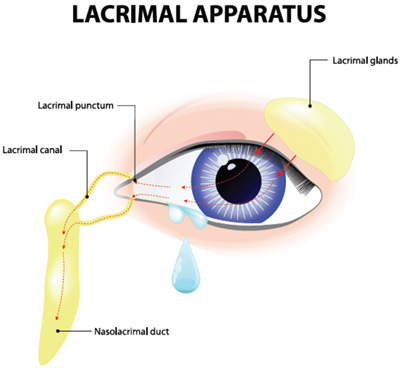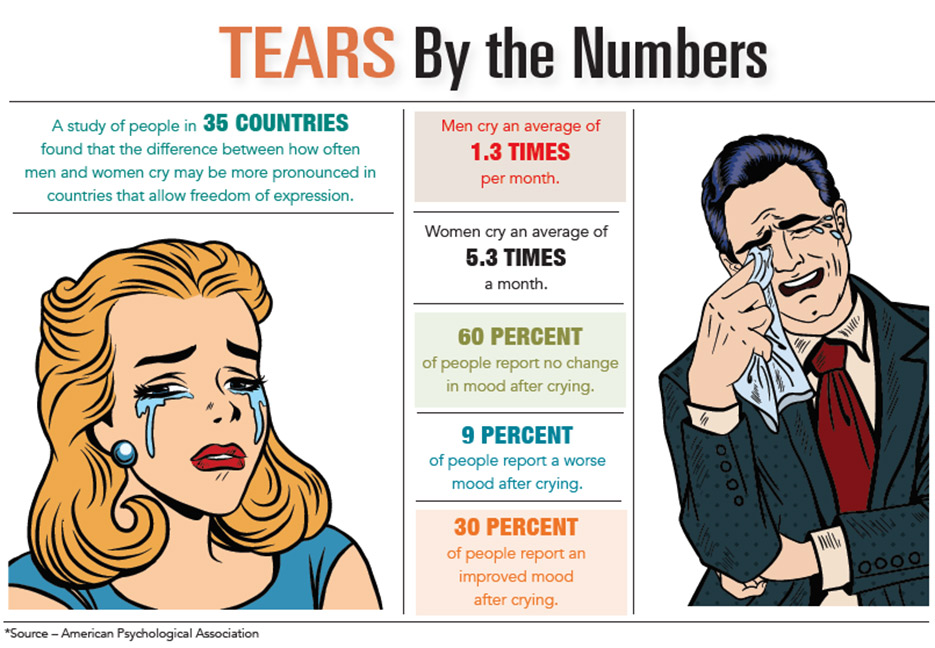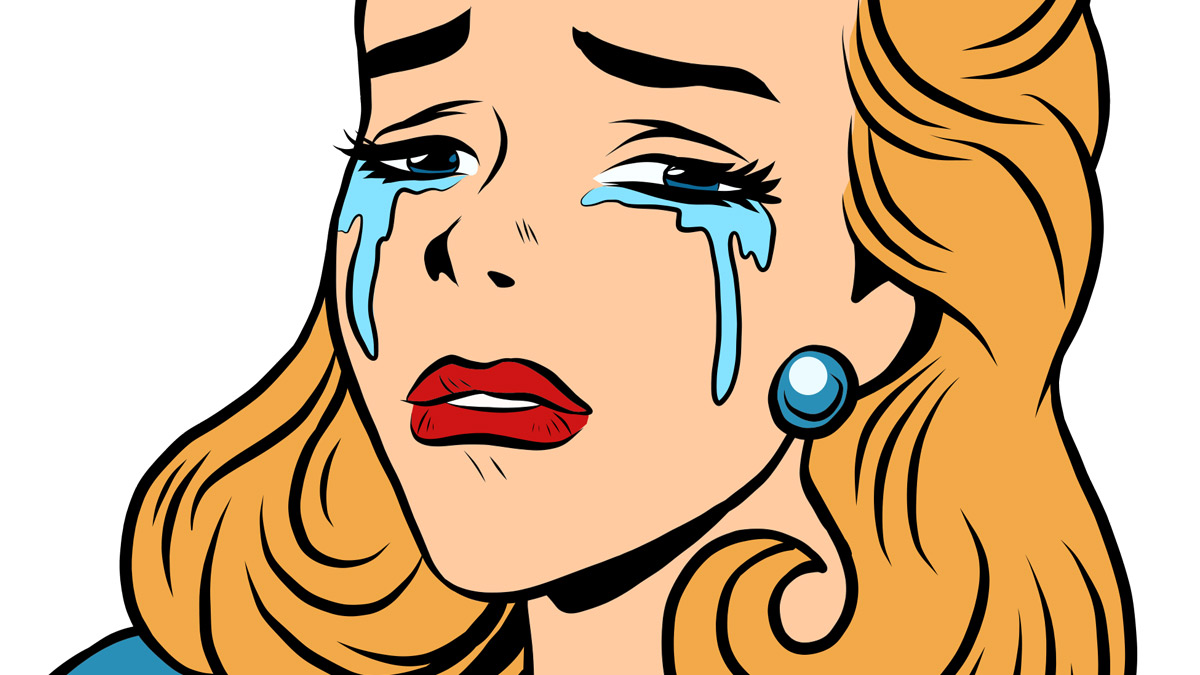When I last cried, I had just been dumped. It was appropriate to shed tears in that moment, trudging up the gray sidewalk on a foggy day to my front door, feeling lonely and unloved. At the time, I didn’t make any connection between that piteous afternoon and another afternoon back in September, when I’d foolishly gotten an upscale brand of sunscreen in the corner of my left eyeball. My eyes burned and watered for absolutely hours. Interestingly, these two incidents are, in fact, connected – by tears.Tears are an important part of our culture. From a baby’s first wail to sobbing at a romantic drama to wiping an eye at a loved one’s death, we all associate these droplets of salt and water with emotion, not necessarily function. Oh, sure, we know that tears spring to action when something irritates your eyeball – like an onion, say, or evil sunscreen – but how often do we think about their more mundane task: to keep your eyes lubricated?
Actually, according to Dr. Nick Knight, we have three different types of tear varieties: basal, reflex and psychic. The basal tears are the ones that work hard constantly to keep your eyes from drying out. Did you know that tears were always around like that?
“I like to call these worker tears,” said Dr. Knight. “They keep your cornea, the transparent front of your eye, nourished and lubricated.”
Meanwhile, we also have reflex tears – the ones that kick in when you’re slicing an onion or get a harmful substance in your eyes. Their purpose is to wash out whatever ails you, and, as I discovered on that day at the beach, they won’t stop until your eye is rid of the irritant. This means you could be spurting hot tears for a hot minute or two, regardless of your happiness.

Before we get to the third type – everyone’s favorite – it’s important to note that not everyone makes the necessary amount of reflex and basal tears. Dry eye syndrome is a challenge for some folks, but fortunately there are medical options. John Martin, a moderate dry eye sufferer, got punctul plugs put into his tear ducts to help with his lack of eye lubrication.
“I’ve had dry eyes for years,” he said. “But I didn’t know anything was wrong. When I was younger, I wore contact lenses when I ran college track. I still run now, but I run in glasses. I don’t like to wear contacts; they dry my eyes out more.”
Martin said that dry, wintry air and sleeping underneath whirring fans also aggravate his eyes from time to time, since all of the tear types, including reflex tears, aren’t as plentiful. Before he got the eye plugs, he often woke up with uncomfortably dry eyes.
“My eyes didn’t bother me during the day so much – maybe because of blinking,” he shared. “But they would be dry and bloodshot in the morning and would even hurt. I had to use a lot of artificial eye drops, particularly in the colder months. Now, with plugs, I don’t need drops so much.”
Ordinarily, tears drain through little holes known as the lacrimal puncta. In Martin’s case, the tears are slowed by the plugs, stay in his eyes longer and keep his corneas from drying out.
“My tear production wasn’t bad enough to need surgery, but I had plugs inserted so that the tears my eyes do make don’t drain out too fast,” he explained.
I couldn’t help asking Martin if he’s able to cry over something sad – those infamous “psychic” tears, according to Dr. Knight.
“Yes,” he assured me. “But not much.”
Dr.Knight said that the emotional (psychic) tears are a result of the connection between our limbic system – responsible for mood, emotion and other fun stuff – to our nervous system, and thus, our lacrimal (tear) system.
“So in short, your emotional reaction … triggers your nervous system, which in turn orders your tear-producing system to activate,” he explained, adding that other nervous system changes – such as increased heart rate, slowed breathing and the notorious lump in the throat – are present during a good sob. Interestingly, Dr. Knight noted that the purpose of the waterworks to show emotion might be twofold: Tears actually contain a natural painkiller, known as leu-enkephalin, and, on a more societal level, tears signal to loved ones that you need support.
“There are some psychologists who believe you feel better after a cry because of the social input, solidifying of relationships with those sharing the experience,” said Dr. Knight.
So don’t be ashamed of those tears – love them for what they are and how they keep your eyes healthy and your emotional reactions sincere. As for me, I was thankful for my watery eyes after the bout of sunscreen. As for the breakup, well, my girls came over with Prosecco. So I guess my tears did their job then, too.
By Denise K. James








